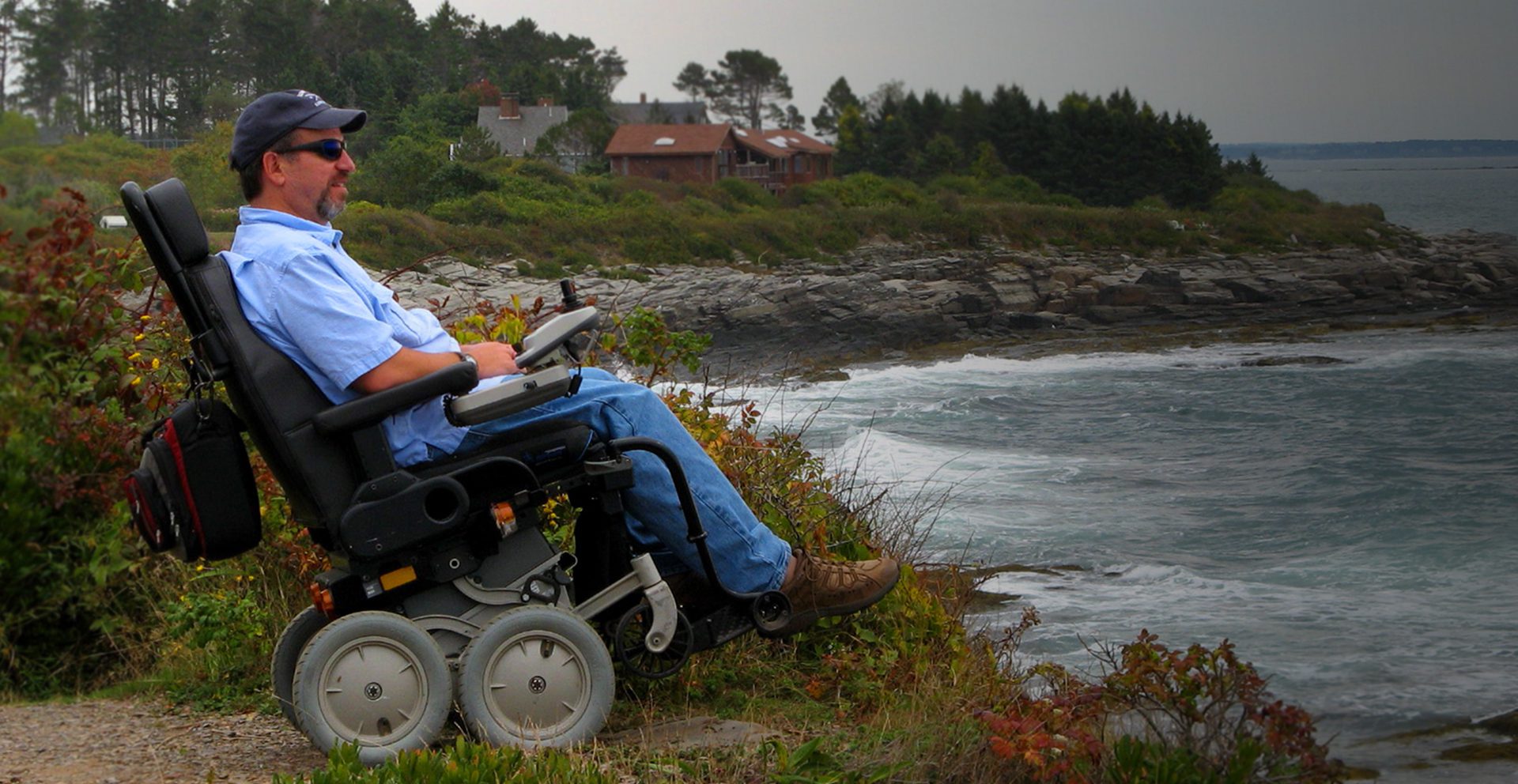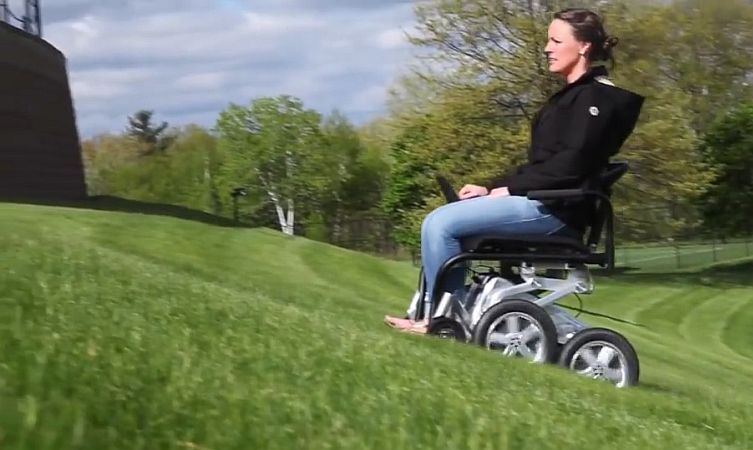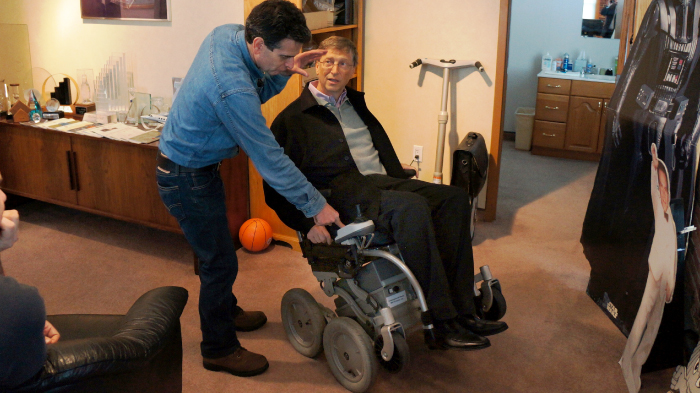The iBOT is the superhero of wheelchairs
Toyota and Segway inventor Dean Kamen have teamed to produce this stair-climbing, self-balancing, all-terrain mobility ninja.

iBOT – An advanced mobility system restoring freedom and dignity. DEKA Research
BBC 25 May 2016
| A wheelchair for the adventurous |
Toyota Motor Corp, which last year kicked off a $1b robotics and artificial intelligence initiative, has announced plans to partner with Dean Kamen’s Deka Research and Development to produce a new and improved version of Kamen’s 1999 iBot, a four-wheel-drive motorised wheelchair capable of traversing rough terrain and even climbing stairs.
Former licensee Johnson & Johnson produced the chair from 2003 until 2009; its discontinuation was decried by its fans — and by robotics enthusiasts, who envisioned using the iBot’s versatile drive system as base for a highly capable domestic droid. (Citing restrictions related to US government certification, Johnson & Johnson never sold the platform to roboticists).

Toyota and DEKA share the same vision of making mobility available to people of every kind of ability,” said DEKA founder Dean Kamen. “We are excited about this new relationship and excited about what it means for making that dream a reality.
| Upwardly mobile |
The Toyota/Deka mobility machine’s marquee talent is its ability to “stand” on two wheels, giving the user extra height to reach, say, kitchen cabinets or books on a shelf. The standing configuration also allows the user to feel less chair-bound by offering eye-level interaction with standing adults. To achieve the increased seat height, the machine shifts its articulated four-wheel chassis, lifting its front axle and balancing on its two rear tyres.

I got to try out their redesigned wheelchair, the iBot. After 30 seconds, I was completely comfortable, even as it balanced at eye-level on two wheels. Bill Gates
| Segway segue |
If the iBot’s two-wheel self-balancing function seems familiar, that’s because the chair’s Kamen-invented gyroscopic innards inspired another mobility device, that darling of mall cops and beach tourists everywhere, the Segway transporter. During development, the iBot’s internal nickname was “Fred” — as in Astaire; the original Segway’s was — you guessed it — “Ginger”.
| What will it cost? |
Toyota and DEKA haven’t announced pricing for iBot 2.0, but the original version commanded a very steep $25,000. A typical motorised wheelchair, in comparison, costs about $3,500.
Source BBC Evolution of Design
| iBOT with Dan Kamen. YouTube May 22, 2016 |
| iBot Segway wheelchair by Dean Kamen. Balazs Koren. YouTube Jul 18, 2017 |
Also see
User Stories – Do more of what you love in an ibot® PMD Mobius Mobility
A day at Deka Research with Dean Kamen by Bill Gates
Toyota helps reboot iBOT ‘walking’ wheelchair Toyota Blog
iBOT Wikipedia






